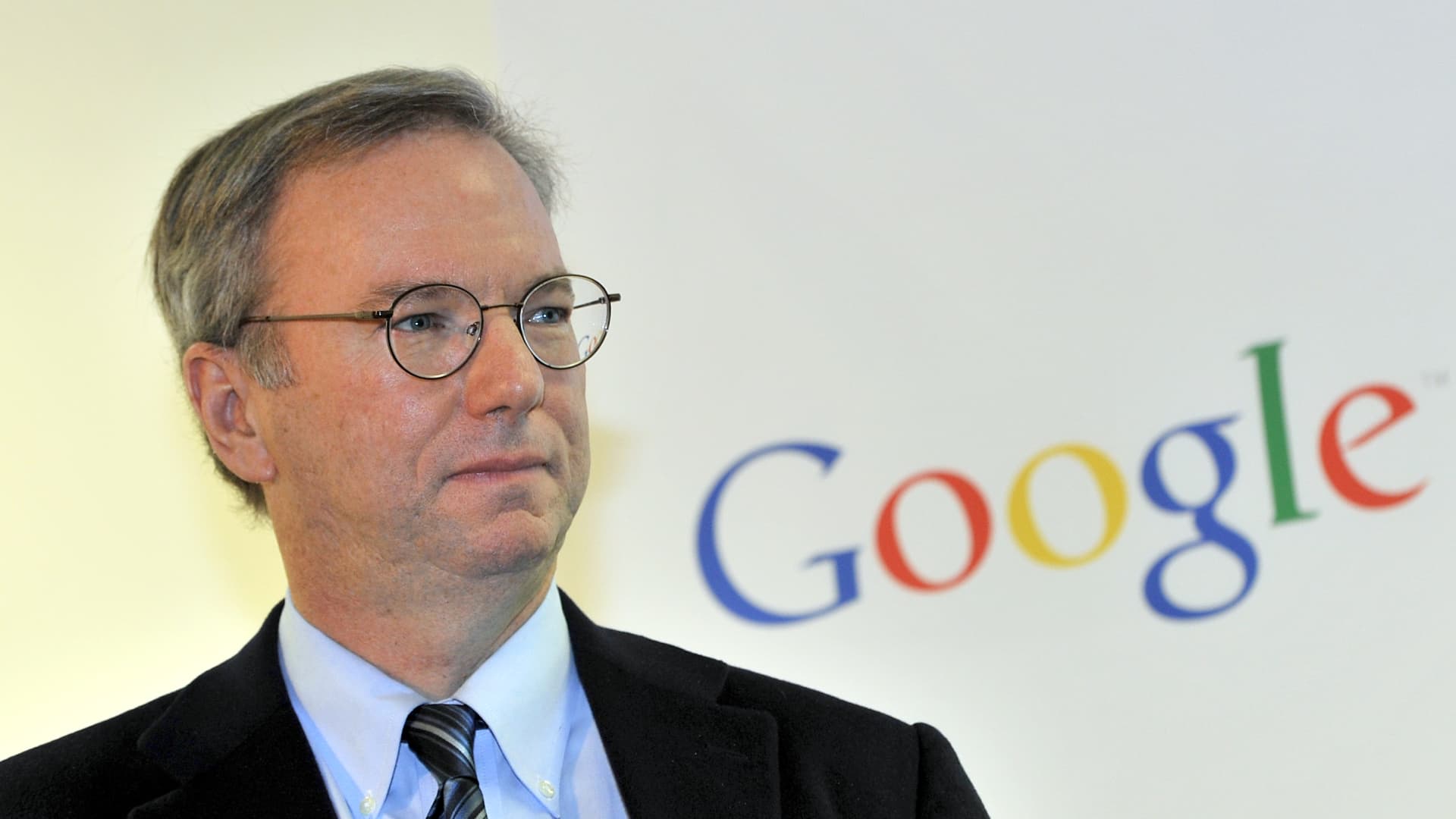
After more than two years of remote work and multiple return-to-office delays, most Google employees are heading back to the office at least part-time — and ex-Google CEO and chairman Eric Schmidt couldn’t be happier about it.
“[I]t’s important that these people be at the office, in my view,” Schmidt, 66, tells CNBC Make It, arguing that for decades, the in-office style has been proven effective. “I’m a traditionalist.”
Starting Monday, Google’s hybrid work arrangement kicked off, with most employees expected to be in the office at least three days per week. Schmidt, who served as Google’s CEO from 2001 to 2011, helped transform the then-young Silicon Valley start-up into today’s $1.9 trillion global tech behemoth — and credits in-office work for much of that growth.
“We spent decades having these conversations about people being close together … the discussion at the coffee table and going to coffee,” Schmidt says. “Remember all of that? Was that all wrong?”
Schmidt says it’s not just a matter of nostalgia: There are practicalities to working together in person. For example, he says that conversations about professionalism — which might be particularly necessary at companies full of young employees — are much harder to have virtually.
When Schmidt started at Google, for example, the company had “an awful lot of college students who were behaving as though the workplace was like college,” he says. “And I used to say to them, ‘This is not college. This is a professional thing, you can’t do that. And, or, it might be illegal. So please stop, now.'”
Younger employees, particularly those between the ages of 25 and 35, can also use in-office settings to more effectively develop their management styles, Schmidt says. For him, that includes learning about meeting etiquette, presentation skills, workplace politics and dealing with competitors, both internally and externally.
“In terms of their age, that’s when they learn,” he says. “If you miss out [on that] because you are sitting at home on the sofa while you’re working, I don’t know how you build great management. I honestly don’t.”
There are exceptions, Schmidt notes: Some workers might have specialized roles that don’t require a lot of in-person communication, others might deeply dislike the office’s social nature and many probably aren’t looking forward to reintegrating lengthy commutes into their schedules.
Still, Schmidt says, a largescale movement to permanently work remotely would deny at least 30 to 40 years of workplace experience.
“I think there is a lot of evidence that humans are social,” he says. “And that the current virtual tools are not the same as the informal networks that occur within a corporation.”
Don’t miss:




